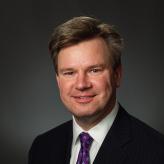Supreme Court: Calif. university’s policy upheld, but school still barred from targeting Christian group
WASHINGTON — The U.S. Supreme Court ruled 5–4 Monday to uphold an unusual university policy that forces student groups to allow outsiders who disagree with their beliefs to become leaders and voting members. The court confined its opinion to the unique policy and did not address whether nondiscrimination policies in general, which are typical on public university campuses, may require this. The court concluded that public universities may override a religious student group’s right to determine its leadership only if it denies that right to all student groups.
Attorneys with the Christian Legal Society and Alliance Defense Fund represented a student chapter of CLS at California’s Hastings College of the Law in the lawsuit, Christian Legal Society v. Martinez. The suit was filed in 2004 after the law school refused to recognize the chapter because the group requires all of its officers and voting members to agree with its basic Christian beliefs.
“All college students, including religious students, should have the right to form groups around shared beliefs without being banished from campus,” said Kim Colby, senior counsel at the CLS Center for Law & Religious Freedom. “Today’s ruling, however, will have limited impact. We are not aware of any other public university that has the exact same policy as Hastings.”
“The conflict still exists. This decision doesn’t settle the core constitutional issue of whether nondiscrimination policies in general can force religious student groups to allow non-believers to lead their groups,” explained ADF Senior Legal Counsel Gregory S. Baylor. “Long-term, the decision puts other student groups across the country at risk, and we will continue to fight for their constitutional rights. The Hastings policy actually requires CLS to allow atheists to lead its Bible studies and the College Democrats to accept the election of Republican officers in order for the groups to be recognized on campus. We agree with Justice Alito in his dissent that the court should have rejected this as absurd.”
The law school’s acting dean went so far as to state in a PBS interview in April that a black student organization must admit white supremacists.
“We believe we will ultimately prevail in this case,” McConnell said. “The record will show that Hastings law school applied its policy in a discriminatory way--excluding CLS from campus but not other groups who limit leadership and voting membership in a similar way. The Supreme Court did not rule that public universities can apply different rules to religious groups than they apply to political, cultural, or other student groups.”
In his dissent, Justice Samuel Alito wrote, “Brushing aside inconvenient precedent, the Court arms public educational institutions with a handy weapon for suppressing the speech of unpopular groups…. I can only hope that this decision will turn out to be an aberration.”
Twenty-two friend-of-the-court briefs from a broad and diverse array of nearly 100 parties were filed with the Supreme Court in support of the CLS chapter, including a brief filed by 14 state attorneys general. Lead counsel Michael W. McConnell, director of the Constitutional Law Center at Stanford Law School and a senior fellow at the Hoover Institution, argued before the court on April 19 on behalf of the CLS chapter.
- Christian Legal Society information page on the case
- CLS Senior Counsel Kim Colby: kcolby@clsnet.org or (703) 894-1087
The ADF Center for Academic Freedom defends religious freedom at America’s public universities. ADF is a legal alliance of Christian attorneys and like-minded organizations defending the right of people to freely live out their faith. The CLS Center for Law & Religious Freedom is the advocacy division of the Christian Legal Society, a nationwide association of Christian attorneys, law students, law professors, and judges.
Related Profiles

